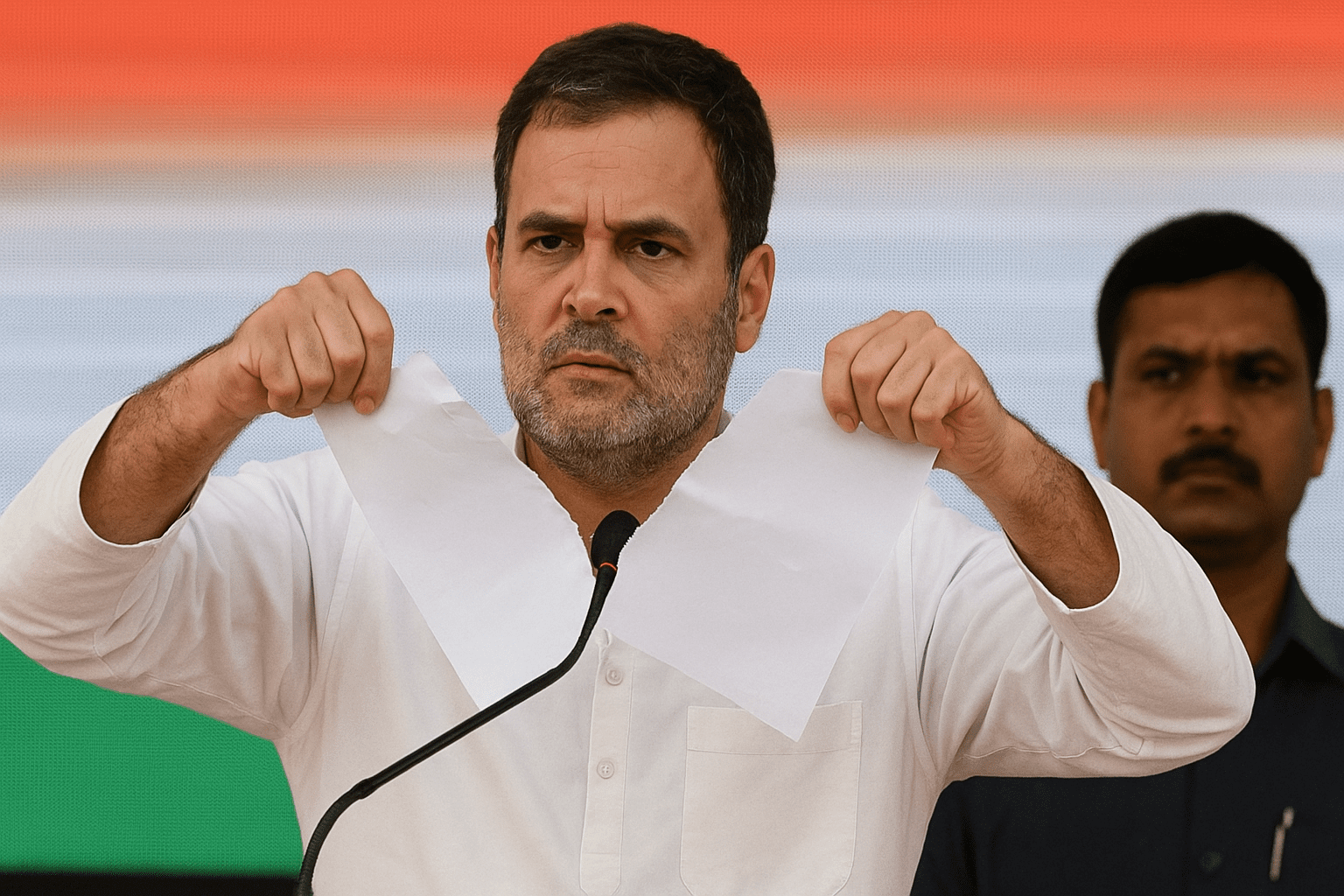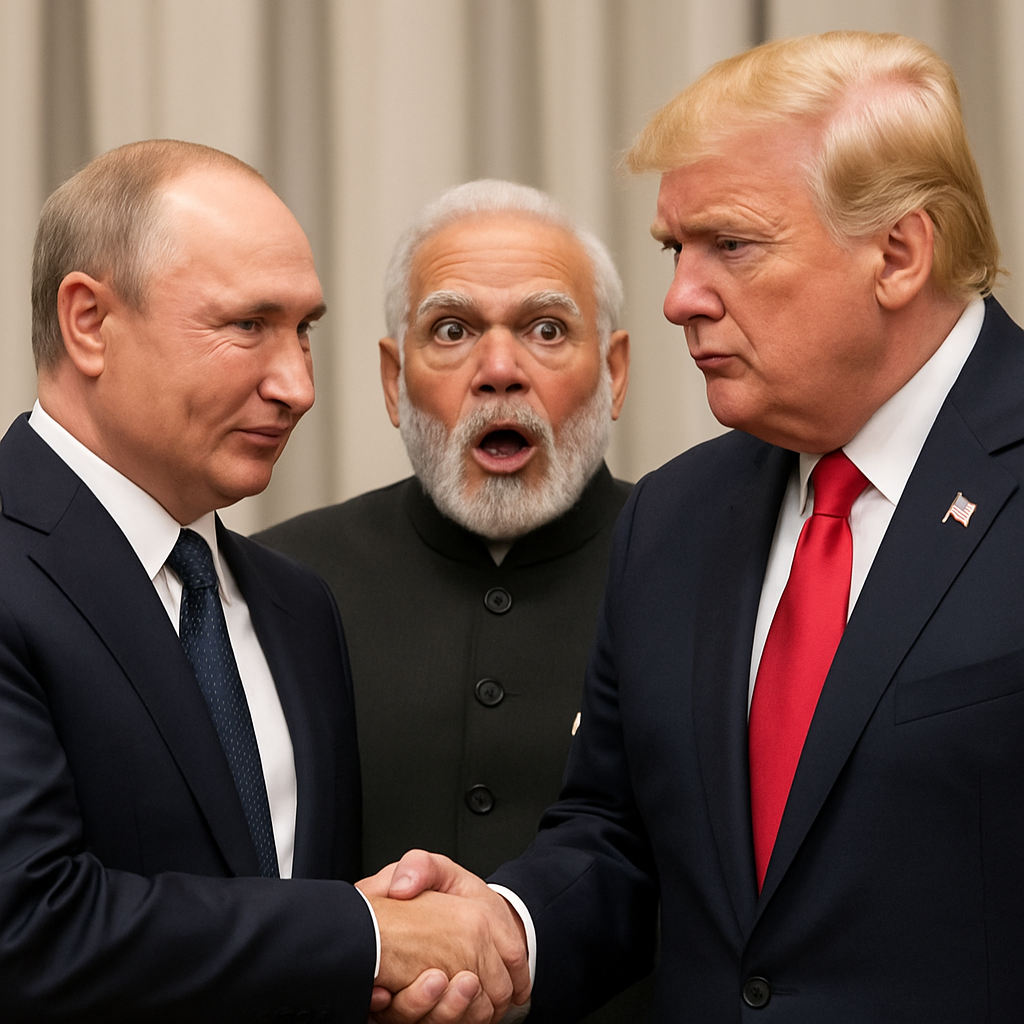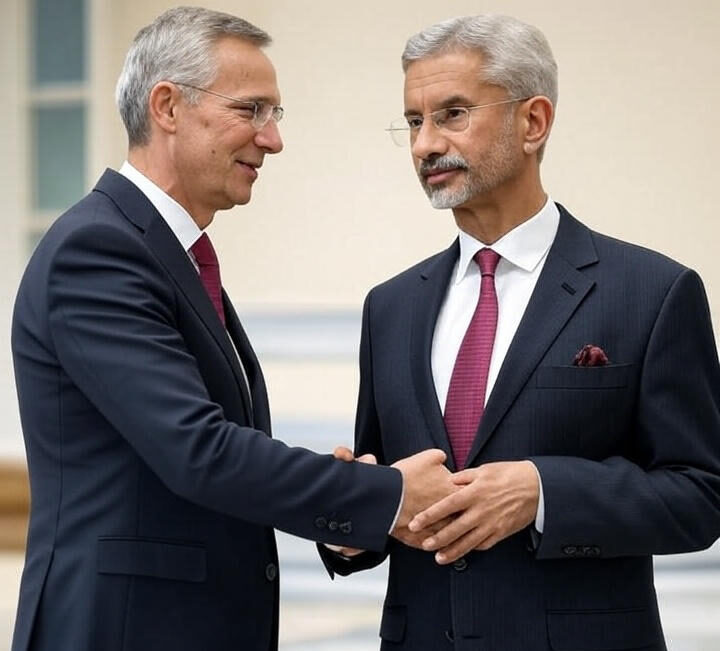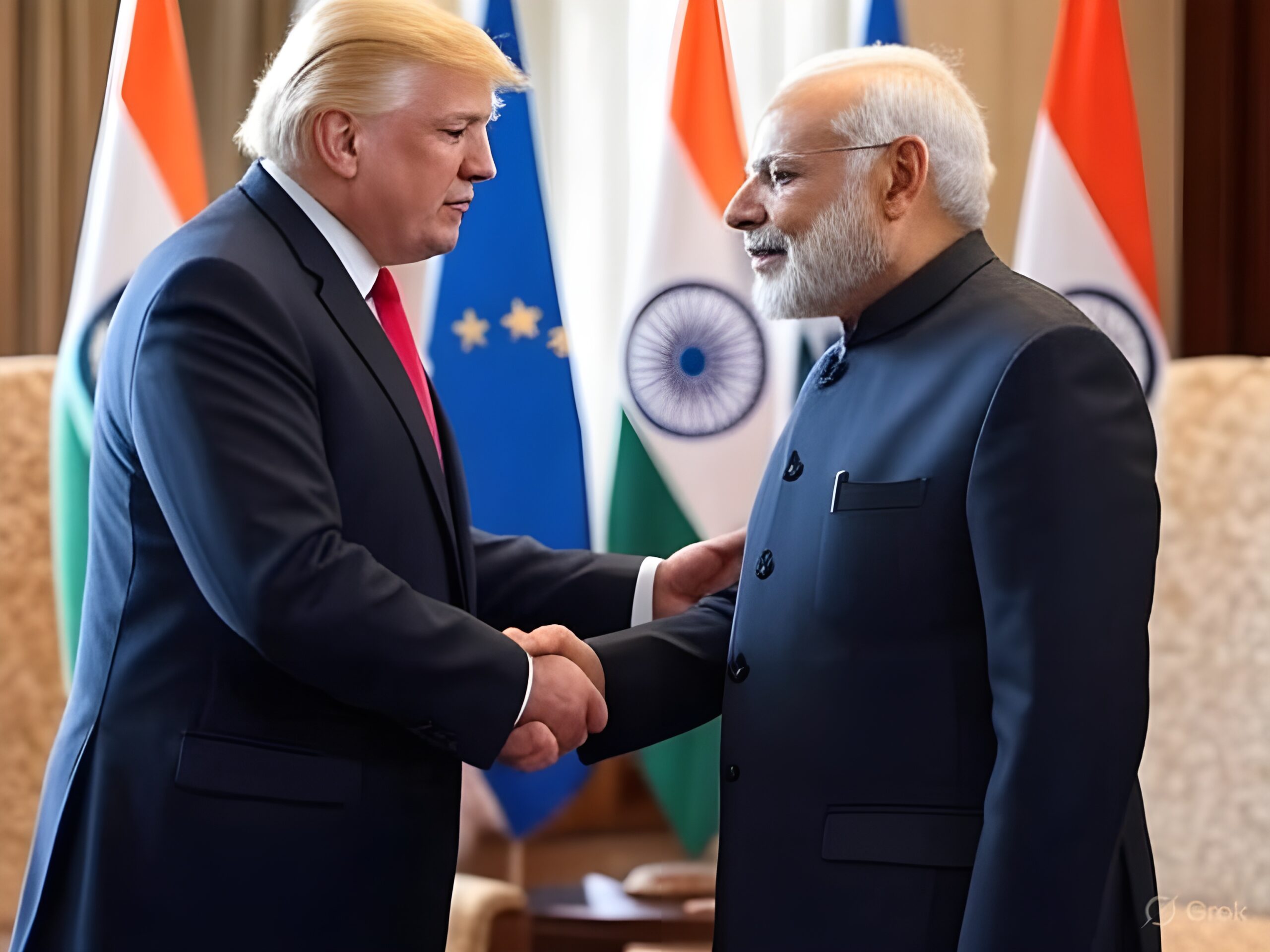In Indian politics today, one key question stands out: are leaders working for the country’s unity—or only for their own power? Looking at the words and actions of Congress leader Rahul Gandhi, the answer seems troubling. His political strategy appears less about development and more about spreading fear, targeting institutions, and dividing society for votes.
This article is an analysis of Rahul Gandhi and the Congress party’s strategy of spreading baseless claims about constitution under threat and Election Commission for electoral gains, while promoting division through appeasement and caste politics.
A Manufactured Crisis: The Myth of Constitutional Threat
Rahul Gandhi has repeatedly claimed that India’s Constitution and democracy are under threat. But these fears, critics say, are largely manufactured. A calculated strategy that involves peddling fake narratives, undermining constitutional institutions, and dividing the social fabric of the nation, all in a desperate bid to claw back to relevance. This blog dissects this dangerous political gambit that places self-interest above national interest.
One of the most persistent and baseless narratives propagated by Rahul Gandhi is the claim that the Constitution and democracy are in grave danger. This is a classic example of creating a phantom threat to position oneself as a saviour.
The Indian Constitution, a sacred document drafted by Dr. B.R. Ambedkar and our founding fathers, has never been more secure. The current government has consistently worked within its framework, launching schemes that empower the very sections the Constitution seeks to protect—the poor, the marginalised, and the backward classes. By projecting a “crisis,” the Congress seeks to unite minority communities and liberal voters against a common enemy. This is seen as an attempt to create panic rather than present real evidence. Put simply, the talk of a constitutional breakdown has become more of a political slogan than a genuine concern.
Baseless Allegations Against the EC
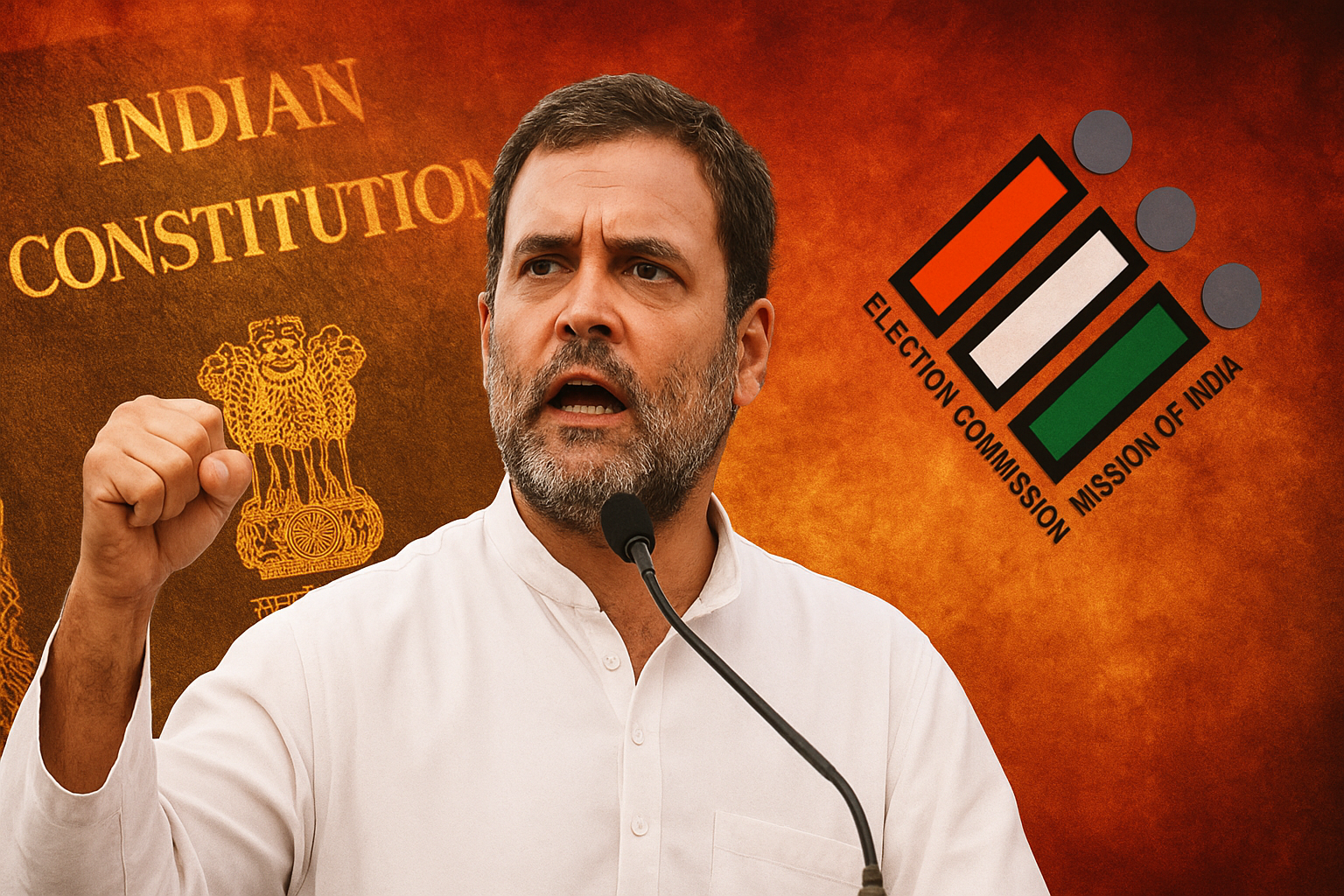
Congress party’s repeated tactic is questioning the neutrality of the Election Commission of India (ECI). When unable to win the people’s trust, the next step for a faltering party is to discredit the referee. Rahul Gandhi and his party have repeatedly attempted to undermine the credibility of the Election Commission of India (ECI). But the truth is the ECI is a globally respected institution that has successfully conducted free and fair elections in the world’s largest democracy for decades, under various governments of all political colours.
Yet, whenever results go against Congress, allegations of bias are made. Importantly, no concrete proof is offered. These complaints are strategic, aimed at creating a pretext to explain their impending electoral defeats and to delegitimize a democratically elected government in the eyes of their supporters and the world.
The Desperate Gambit: Appeasement and Division
Having lost the narrative on development and national security, the Congress party has reverted to its oldest playbook: divide and rule. As we all knew even during the pro-independence period Many critics believe Congress supported Khilafat movement in a bid to win Muslim sympathy, seeing it as an act of appeasement that served Congress’s immediate political interests more than India’s long-term national interests.
The Muslim Appeasement Strategy:
Political parties sometimes focus on a single community just to win votes. They make promises and use speeches that make one group feel mistreated or like victims. This approach divides society, damages harmony, and treats people like blocks of votes to be won, not as equals with common concerns
Dividing the Hindu Vote by Caste:
Recognizing that their traditional vote bank is insufficient, the Congress, led by Rahul Gandhi, is now focusing on dividing the majority community by highlighting caste differences and pushing for caste census, instead of working for real social justice. Pitting one caste against another is not a genuine move for social justice—which is already being served through numerous government schemes.
This tactic tries to split Hindu votes so that Congress can win more seats but not to uplift society. The goal is to break the unity and use smaller groups to for temporary gains to get in to power
Conclusion: National Interest vs. Self-Interest
The contrast in priorities could not be starker. On one hand, there is a government focused on development (Vikas), national security, and uplifting every citizen through empowerment. On the other, a leader and a party whose entire campaign rests on spreading fear, distrust in institutions, and social division. Rahul Gandhi’s politics is not about offering a better vision for India; it is about returning to power at any cost. That cost, unfortunately, is the nation’s social cohesion, the credibility of its time-tested institutions, and the very truth that binds a democracy together.
It is imperative for the discerning voter to see through this web of deception. The question we must ask is: do we want a leader who builds India up, or one who only seeks to break it down to piece together a winning electoral equation? The future of our national interest depends on the answer.

